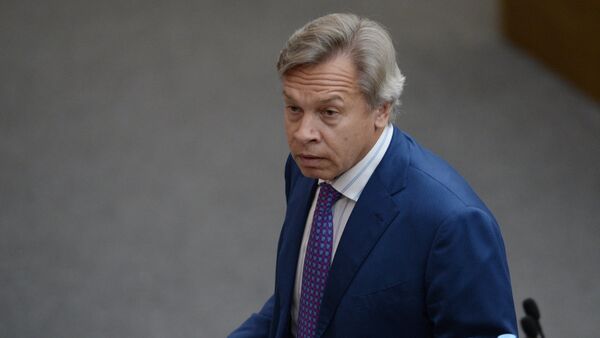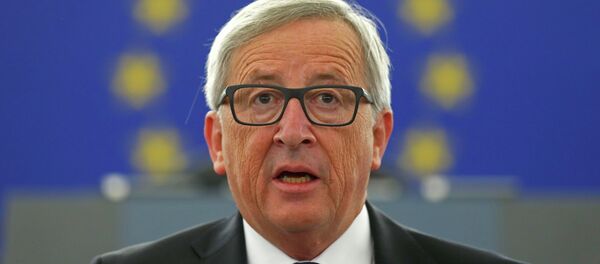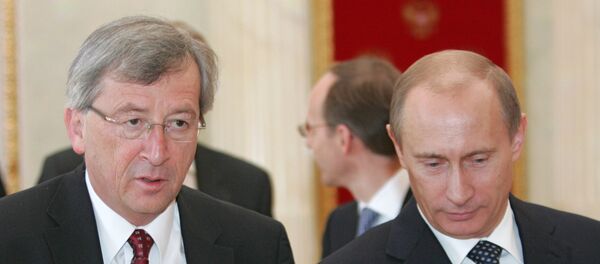"The UN General Assembly has yielded some results. First of all, the speech of US President [Barack] Obama has demonstrated, what many have suspected of, absence of new ideas and thought-out strategy in the United States… Secondly, [it showed that] Russia has a specific and clear strategy, creation of an effective international anti-terrorist coalition, similar to the one that was set up in due time against Adolf Hitler. And, thirdly, the UN General Assembly indicated that the United States, before our eyes, ceased to be a lonely superpower," Alexei Pushkov stated.
During the Ukrainian conflict, Russia showed it was able to defend its interests, and in the course of the Syrian civil war Moscow has demonstrated it can act independently, he added.
"At present, we can talk about forming of the 'Big Three' leading world powers. Therefore, the UN General Assembly marked a turning point in the evolution of the modern world order," Pushkov stressed.
According to the lawmaker, there is a tendency in Washington to regard global policy from the standpoint of a struggle for global leadership.
"The concern about the possible loss of this leadership has become a true mania in the United States, which is voiced both in speeches of the US president and the presidential candidates. I would call it a syndrome of fading leadership," the parliamentarian noted.
Both Russia and China share a multipolar vision of the world, sending a message to Washington that the time of unchallenged US hegemony, politically, economically and militarily was ending.
The Western nations start to realize that defining their diplomatic unity by basing it on being against Russia is not a foreign policy with a future, the head of the Foreign Affairs Committee of the lower house of Russia's parliament said Wednesday.
Earlier in October, European Commission President Jean-Claude Juncker said Russia should be treated decently, and Brussels must restore a "practical relationship" with Moscow. He added that while the United States has its own take on the matter, the European Union must prioritize its own interests.
"The unity of the West on the basis of the anti-Russia attitude has no prospects. And it is increasingly understood in the West itself. In this sense, the recent statement by European Commission President Jean-Claude Juncker…is very illustrative," Alexei Pushkov said during questions in the parliament with Russian Foreign Minister Sergei Lavrov.
Russia's relations with the West soured over the 2014 Ukraine crisis. The European Union, the United States and some other countries have imposed several rounds of anti-Russia sanctions, accusing Moscow of direct participation in Donbas conflict.
Moscow has firmly denied the accusations, stating that sanctions are counterproductive and negatively affect those who impose them.





